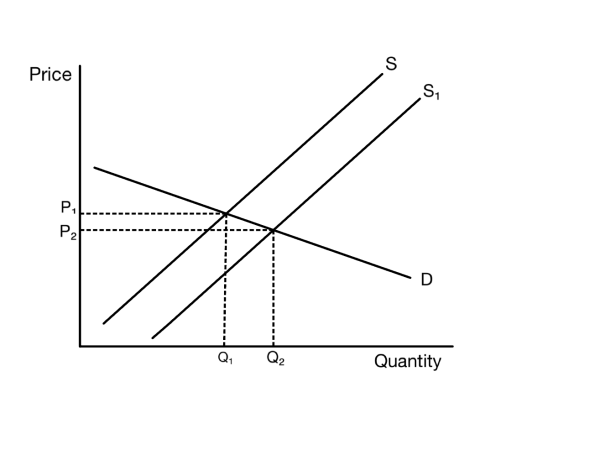About the author: Saesha Chohan was commended in the Future Economists Essay Competition 2024.
Saesha answered Question 1: The UK Dasgupta Review of Economics and Biodiversity states that ‘Our unsustainable engagement with nature is endangering the prosperity of current and future generations’. What economic policies could Jersey introduce to protect and restore the natural environment?
Future Economists Essay Competition 2024: Commended
Dear Sir/Madam
The need to address the unsustainable way in which people are engaging with the natural environment is becoming more severe than ever. If action is not taken, global warming is predicted to increase to 2°C by 2050, which may lead to a rise in sea levels, increasing flooding as well as other catastrophic impacts. As jersey is a small island, it is relatively susceptible to flooding therefore it is even more essential that the island does its part in an attempt to restore and protect the natural environment. Economic policies can greatly affect the path that Jersey’s natural environment takes as market forces alone will not solve the problem, meaning it is necessary for the government to step in.
An effective method of reducing carbon emissions is substituting the use of diesel or petrol vehicles for electric vehicles. Electric vehicles contain a lithium battery which is charged electrically, rather than relying on fossil fuels that release greenhouse gases, harming the environment. The government could provide subsidies to reduce the initial cost of the electric vehicle to incentivise people to purchase the vehicle. As shown in the diagram, quantity demanded will increase from Q1 to Q2 as the demand for cars is elastic so therefore consumers are more sensitive to the change in price due to the subsidy causing supply to shift outwards to S1. Furthermore, to increase the use of electric vehicles, taxes should be put in place on high emission cars and lower taxes placed on lower emission cars and no taxes on zero emission cars. The government tax revenue received from these taxes can then be hypothecated into government spending for the subsidies. The exemption from GST for electrical vehicles will also increase the quantity demanded as it will further reduce the cost of production, decreasing the price at the point of consumption. Norway took a similar approach with the use of taxes to incentivise electric cars, which has, in part, led to 87% of all new car sales in 2023 in Norway being electric. If Jersey adopts these policies, it could greatly decrease its carbon emissions, of which 41% are created from transport.

As the agricultural industry is a large part of Jersey’s culture and agricultural land occupies over 50% of the island’s area, therefore it is important to decrease its harm to the natural environment. Agriculture is responsible for just under 25% of all human produced GHG emissions. The production of synthetic fertilisers is one of the causes of this as it the making of them that is harmful and they can run off into water sources, contaminating it. This can be reduced by putting a maximum price on natural fertilisers in place. This makes the natural fertilisers more affordable for farmers, encouraging them to increase demand. Further funding can also be put into finding easily accessible natural fertilisers. For example, seaweed has historically been used as manure in Jersey and with some research, could possibly become a more commonly used natural fertiliser on the island.
Another approach could be placing a cap on maximum carbon emissions to incentivise farmers to find alternative more sustainable and environmentally friendly substitutes. For this to be effective, the consequence, for example a fine that farmers are met with if they exceed the carbon emissions limit, must be a higher cost for the farmers than a sustainable substitute, for example, renewable energy. The government can then slowly reduce the carbon emission cap so gradually less emissions are being released. Another approach could be to provide grants for farmers to adopt regenerative practices like cover crops, which provide soil improvement, water retention, weed suppression as well as erosion prevention. This and other sustainable farming methods will lead to a significant decrease in the pollution to the natural environment from toxic pesticides and less water will be lost and wasted. As an added incentive for farmers to put these into place, a type of labelling should be added to products, showing that they are produced by the farmers using greener and more environmentally friendly methods so consumers are more likely to buy the goods, even if they are slightly more expensive, as they are helping the environment as well as buying local produce.
In conclusion, economic policies in Jersey to protect and restore the natural environment are essential to keep the island vibrant and healthy. It is also essential that the government intervenes and works with the local community to make this realistically achievable. There are many ways of encouraging people to reduce their contribution to climate change, but it is important for Jersey to put policies into place which are relevant specifically for the island. Electric cars would greatly decrease carbon emissions due to the lack of quick and regular public transportation, resulting in more people using cars for transport, and decreasing the harm farming causes to the environment will make a large impact for jersey due to the large farming culture. These are just some of the ways economic policies can be greatly and effectively utilised to protect and restore Jersey’s natural environment for present and future generations.
References
- World wildlife fund
- CNBC
- Norsk elbilforening Norwegian EV policy
- Government of Jersey
- The climate reality project
- ITVX
 blog.gov.je
blog.gov.je